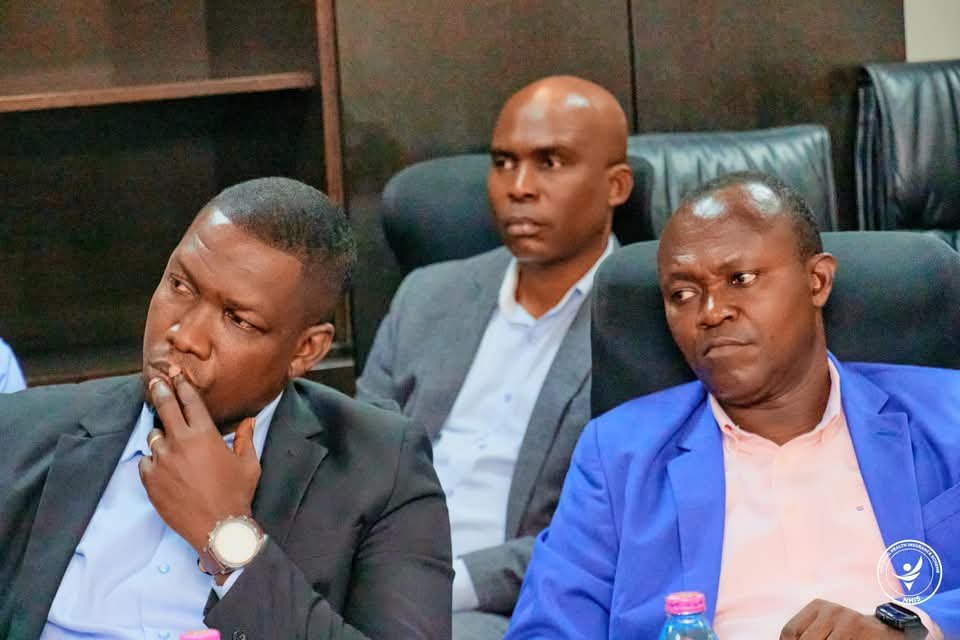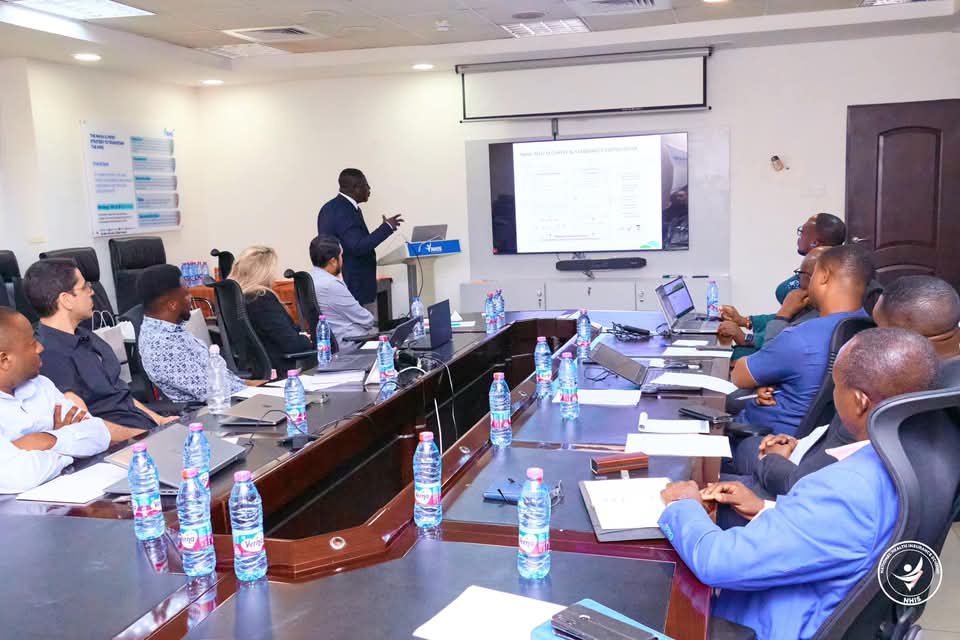Hot!
Govt clears GH¢2.63bn legacy owed ECG

The Minister of Energy, John Peter Amewu says the government has cleared the GH¢2.63 billion legacy debts owed the Electricity Company of Ghana (ECG).
Addressing a press briefing in Accra yesterday, he said, as at December last year, the government had paid the full amount of electricity bills and currently had a credit balance of GH¢500 million with the power distributor.
In order to remain current on bills expected to be paid by the government since assuming power, he said an annual payment of GH¢2 billion was made to the ECG from 2017.
“As of December 2016, when the National Democratic Congress (NDC) left office, the bill owed ECG by the government at that time was GH¢2.63 billion.
On assumption of office, the New Patriotic Party (NPP) ensured that it was current on all the bills incurred during its tenure, from 2017 to date. On the average, President Akufo-Addo has paid GH¢2 billion annually to cover its bills with the ECG,” he added.
With an average electricity bill payment of GH¢100 million per month, the Minister explained that the GH¢500 million credit balance would cover government’s electricity bill from January to April this year.
Additionally, he said unreconciled additional payment of GH¢4.14 billion by government to fuel suppliers of power producers, which were yet to be credited to government would position the country toward addressing financial challenges crippling the sector.
In this regard, the Energy Sector Reform Programme designed to improve the sector, Mr Amewu noted, has been approved by cabinet to ensure a reliable and effective electricity company in the country.
President Nana Akufo-Addo, in his sixth address to the nation, announced government’s decision to absorb the electricity bills of consumers as part of measures to mitigate the impact of the coronavirus disease on Ghanaians.
He said as part of the measures, government would fully absorb the electricity bills for people who consumed zero to 50 kw/h of electricity for the periods of April, May and June.
He added further that, for residential and commercial users, government would absorb 50 per of the electricity bills using March 2020 as benchmark.
The decision, he said, was to support industry, enterprises and the service sector, as well as provide some relief to households for lost income.
Ghana’s confirmed cases of the disease is presently 5,918 with 31 deaths and 1,754 recoveries.
As it stands, the country’s active cases are 4,128 with five persons in critical and moderately ill conditions at the various treatment centres.
BY CLAUDE NYARKO ADAMS
Hot!
FA President, Vice-President, football family pays last respect to late Kotoko fan Nana Pooley

President Kurt Edwin Simeon-Okraku led a delegation from the Ghana Football Association and the football fraternity to mourn with Asante Kotoko and pay last respect at the funeral of devoted fan, Yaw Frimpong, better known as ‘Nana Pooley’, on Thursday March 6, 2025, in Kumasi.
The funeral, held at the Heroes park, Baba Yara Stadium in Kumasi saw a strong representation from the Ghana Football Association (GFA) and key members of the football fraternity.
President Okraku and Vice-President Mark Addo attended the funeral alongside key football industry players.
The President, was joined by his team of Executive Council members, Regional Football Association Chairmen, Club Executives and officials from the GFA to show support and solidarity to Asante Kotoko and bid farewell to the passionate fan.
The late Nana Pooley, who passed away painfully last month, was interred at Ahafo Kukuom Royal Mausoleum on Thursday March 6, 2025.
The final funeral rites attracted football administrators, supporters and enthusiasts from across the country, as the fraternity celebrated the life of a true loyal fan of the Porcupine Warriors in particular, and Ghana football in general.
Nana Pooley, known for his unwavering support and dedication to Asante Kotoko, was highly regarded by the club and its supporters.
His funeral drew a significant crowd, as football officials, fans, and well-wishers gathered to honor the memory of the passionate fan who played an important role in fostering the vibrant fan culture of Asante Kotoko.
This gathering reflects the unity and shared respect in Ghana football, as the football family stood with Asante Kotoko during this difficult time.
Hot!
NHIA set to boost its cybersecurity and IT Infrastructure

The National Health Insurance Authority (NHIA), in partnership with a leading private cybersecurity solutions provider in Ghana, CyberHawk Limited, is advancing the Authority’s digital infrastructure to ensure seamless operations.
This is to safeguard the Authority’s digital technologies and maintain the trust of active members of the National Health Insurance Scheme (NHIS).
In this context, the NHIA Management Information System (MIS) Directorate in the Head Office, on February 11, 2024, launched a three-day brainstorming session on the organization’s cybersecurity enhancement agenda.





The MIS Directorate Ag. Director, Mr. Daniel Blankson explained that the collaborative meeting aimed to scrutinize the NHIA’s Information Technology architecture, identifying potential risks and gapsto enhance its cybersecurity posture.
“By leveraging CyberHawk Limited’s expertise, the NHIA seeks to fortify its defenses against cyber threats, protecting sensitive information and maintaining the trust of its members.”
Mr. Blankson applauded the synergy between the two organizations and underscored the Authority’s commitment to embracing cutting-edge technologies and innovative solutions to drive its mission forward.
The Head of Information Security and Standards Unit, in the MIS Directorate, Mr. Ebenezer Hooper, highlighted the Authority’s significant milestone on the digital transformation journey.
According to him, the NHIA is actively engaged in fully adopting and implementing modern digital systems to improve its operations.
He said, “The three-day brainstorming meeting will culminate in the development of a robust IT infrastructure, as well as strategic plans to translate security implementations into tangible IT cost savings for the organization.”
“There is the need to form a steering committee or IT advisory committee, operated under the Board, so that they can pay more attention in protecting the huge IT investment while ensuring cyber security-related policies are well protected,” he added.
The Project Manager of CyberHawk Limited, Mr. Chetan Narayana Murthy, lauded the collaboration and anticipated that it would empower the NHIA to implement comprehensive cybersecurity measures.
According to him, “This is a huge project that will greatly benefit the NHIA by implementing robust cybersecurity measures, safeguarding their systems, and ultimately protecting the sensitive information of NHIA members and healthcare providers.”
A Senior Manager of IT infrastructure, Mr. David Asare Addo, and his colleague, a Senior Manager of Applications, Mr. Enock Afanyi, with the MIS Directorate, gave an overview of the NHIA’s current technological landscape.
Present at the meeting were representatives from the Claims, Membership and Regional Operations (MRO), Research, Policy, Monitoring, and Evaluation (RPME), Corporate Affairs, the Audit, Administration, and Human Resource Directorates.
Story By : Vivian Arthur







